As the date of law amendments in October according to the National Assembly 's 2025 Legislative Program approaches, the Vietnamese pesticide production and trading business community is increasingly "impatient" about their recommendations not being included in the amendments.
"Iron hoop" makes it difficult for Vietnamese businesses
Over the past several months, since receiving information to solicit comments on the 2015 Law on Plant Protection and Quarantine, businesses have organized many internal meetings to solicit opinions, analyze, as well as organize dialogues with leaders and experts of the Department of Crop Production and Plant Protection ( Ministry of Agriculture and Environment ) to point out unreasonable points that need to be changed to untie the hands of domestic businesses.

As a leading rice exporter in the world , the use of pesticides is very important in controlling pests and ensuring crop yields (Photo: Tran Manh).
The biggest wish of Vietnamese pesticide manufacturers is to soon amend Article 50 of the Law on Plant Protection and Quarantine - a legal provision that has existed for the past 10 years - but is becoming a major "bottleneck", hindering the common goal.
By inadvertently tightening registration regulations for domestic businesses, this regulation not only stifles innovation but also causes widespread frustration in the business community.
Clause 1, Article 50 of the Law on Plant Protection and Quarantine stipulates the conditions for registering plant protection products: “Domestic organizations and individuals producing active ingredients, technical drugs or producing finished products from technical drugs”. This provision seems to be a requirement to ensure the capacity and responsibility of the registering unit.
However, after a decade of practice, the phrase “technical medicine” has unintentionally become a legal “golden hoop”, which is tightening day by day and paralyzing the creativity of Vietnamese pesticide manufacturing enterprises.
Mr. Nguyen Van Son - Chairman of the Vietnam Pesticide Production and Trading Enterprises Association (VIPA) - explained that the nature of the modern pesticide industry is a highly specialized global supply chain. In which, "technical drugs" (original active ingredients) are often produced in large-scale, specialized factories abroad to achieve purity and economic efficiency.
Enterprises in each country, such as in Vietnam, will import this source of standard technical drugs to conduct research and mix with additives to create "finished drugs" - the final product that reaches farmers.
According to Mr. Son, this is where the brainpower, investment and technological know-how of domestic enterprises reside. Because a good finished product formula must be “tailored” to suit the specific climate, soil, crops and farming conditions in Vietnam.
However, the rigid interpretation of the current law is completely contrary to this practice. The regulation requiring the enterprise producing the finished product to produce "from technical drugs" is understood to mean that the registering unit must have a direct connection, or even be the manufacturer of the original active ingredient.
This, he said, has put Vietnamese businesses in a difficult position. They can spend many years and considerable resources to research a superior new mixture formula, but in the end, they cannot register the product they created themselves.
Instead, they are forced to rely entirely on foreign partners - technical drug suppliers - to request "authorization", and even have to sign post-registration purchase contracts at prices higher than the market.
Competitiveness is eroded, and worse, Vietnamese businesses have been pushed from the position of innovators to become mere processing and distribution units in their own home turf.
“This regulation is stifling the creativity of domestic enterprises. We can produce finished products ourselves, control quality and take legal responsibility, but we are not allowed to register if we do not directly produce technical drugs,” Mr. Son frankly said.
Preventing good products from reaching the market?
This inadequacy becomes even more serious when the above regulation is used as the basis for applying the principle of “one manufacturer - one registration” stipulated in Circular 21/2015 of the Ministry of Agriculture and Rural Development (old).

Farmers harvest coffee in Dak Lak (Photo: Tran Manh).
The director of a pesticide company in Long An gave a specific example. He said that a company A in the world successfully developed a new generation of active ingredient X. Company B in Vietnam researched and created a finished product, a mixture of X+Y, to specifically treat pests on rice. At the same time, company C, also in Vietnam, developed another formula, a mixture of X+Z, to prevent fungal diseases on fruit trees.
Both products have great potential. But according to current regulations, because both B and C use the same active ingredient X from manufacturer A, A is only allowed to authorize one entity, either B or C, to register. As a result, one of the two superior products will never have a chance to legally be born in Vietnam.
“Clearly, this regulation is eliminating the motivation for innovation, preventing technology transfer, and above all depriving farmers of the opportunity to access the most advanced, diverse and suitable agricultural solutions. It is time to remove this unreasonable barrier to unleash the potential of the domestic pesticide industry,” said the director.
According to the roadmap, the draft amendment to the Law on Plant Protection and Quarantine will be submitted to the National Assembly in October - a time expected to remove the "bottleneck" that has existed for a decade.
“We do not ask for special privileges, we only hope for equality. If domestic enterprises have the opportunity to register, we will dare to invest in research, innovation, and most importantly, bring farmers suitable, safe and reasonably priced products,” Mr. Son (VIPA) confided.
The Department of Crop Production and Plant Protection will consider
At the two most recent dialogues between the business community, experts in the pesticide production industry and the Department of Crop Production and Plant Protection (Ministry of Agriculture and Environment), representatives of the Department of Crop Production and Plant Protection admitted this inadequacy.
Ms. Bui Thanh Huong, Head of the Plant Protection Department (Department of Crop Production and Plant Protection), speaking at the conference on July 31, said that the Department is continuing to review, amend and supplement documents to simplify procedures, reduce business conditions and prioritize biological pesticides. Business opinions on Article 50 have been recorded.
Mr. Nghiem Quang Tuan, Deputy Director of the Plant Protection Department, emphasized: "We focus on handling common "bottlenecks", including Article 50. Any amendments, if any, must ensure consistency and create favorable conditions for businesses to develop sustainably."
Source: https://dantri.com.vn/kinh-doanh/nganh-bao-ve-thuc-vat-than-ve-mot-dieu-khoan-mong-duoc-coi-troi-20250909122519761.htm





![[Photo] Da Nang: Hundreds of people join hands to clean up a vital tourist route after storm No. 13](https://vphoto.vietnam.vn/thumb/1200x675/vietnam/resource/IMAGE/2025/11/07/1762491638903_image-3-1353-jpg.webp)


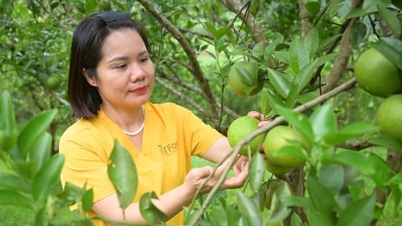





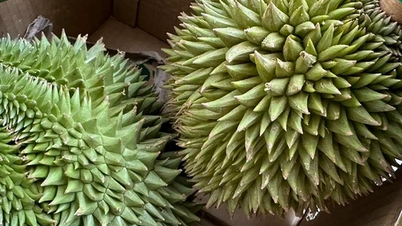

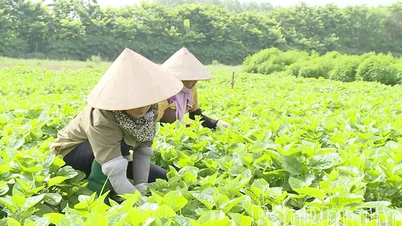

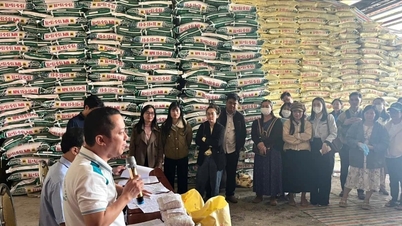
















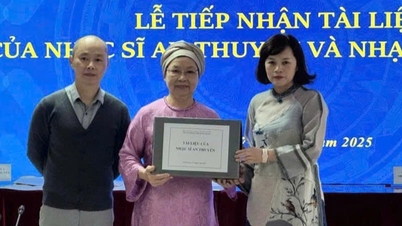











































































Comment (0)